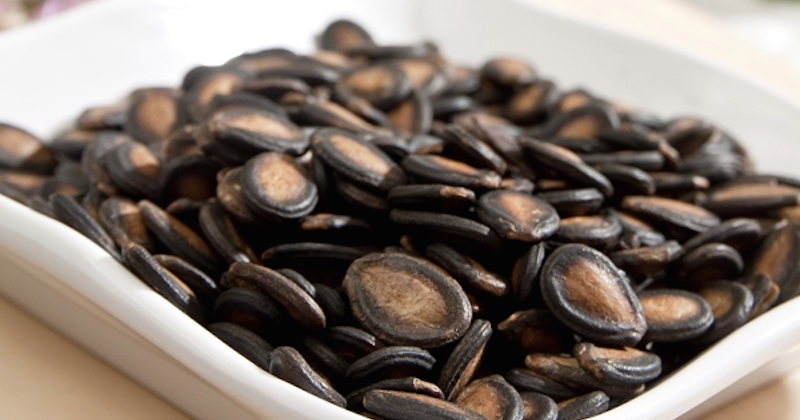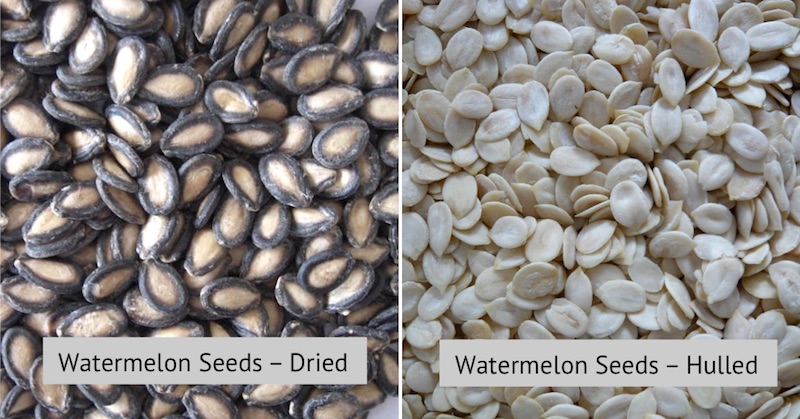Why You Should Eat Watermelon Seeds And How To Do It
Last updated on
What do you think of when you think of watermelon seeds? If you’re like most people, you probably felt a little bit of annoyance when you read that. Watermelon seeds seem to be an inconvenience that get in the way of eating delicious watermelon.
However, if you are not eating watermelon seeds, you are overlooking one of the best parts of this juicy fruit. Watermelon seeds have tons of health benefits that can be hard to get from other sources.
Find out why you should be eating watermelon seeds and how you can best prepare them for optimal taste and enjoyment.
Why Watermelon Seeds Get Overlooked
Watermelon seeds almost always get overlooked. That is why seedless watermelons are so popular—they save people from the hassle of picking out seeds, spitting them out, and throwing them away.
If you like to eat healthy, I would suggest not to buy seedless watermelons, as they have been genetically modified. Fruits are meant to have seeds!
Watermelon seeds may be tough and dense, and seem inedible. In addition, when they first come out of a watermelon, they can be a bit slimy and unappealing. But …
Watermelon Seeds Are Rich In Zinc, Magnesium, Iron And Copper
Eating a small amount of watermelon seeds can give you the chance to enjoy many different nutrients and health benefits.
Like many other seeds, watermelon seeds are packed full of healthy fats. These fats can decrease your appetite, help you feel full, and strengthen your hair, skin, and nails.
Watermelon seeds are rich in zinc and magnesium, two essential minerals that the vast majority of Americans do not get enough of. Zinc and magnesium can help boost your metabolism, give you more energy, and prevent depression. These minerals also support mental clarity.
Another surprising nutrient you’ll find in watermelon seeds is iron. One ounce of watermelon seeds has 25% of the iron that a grown man needs every day. Hitting your recommended daily iron intake can prevent fatigue, improve mental functioning, and prevent anemia.
Minerals are a crucial part of your diet, but they can be very hard to get in your diet via food. Watermelon seeds, in addition to having zinc, magnesium and iron, are an excellent source of copper. Copper protects your hair and skin while giving your body natural protection against UV rays.
Also read the health benefits of watermelon.
Preparing Watermelon Seeds
Most people do not like the taste or texture of raw watermelon seeds, which is why I recommend roasting them at home.
Thoroughly rinse and dry your watermelon seeds. Put them on a roasting pan. You can then add a small drizzle of vegetable oil or olive oil. I like mine plain, without any seasoning, but you can add your seasoning of choice and use your hands to mix the seeds and fully coat them. Roast at 375°F for about 10 minutes.
When they are done, you will have a tasty, healthy snack. But wait, you need to hull them!
How To Eat Watermelon Seeds
The Asian culture eats a lot of seeds—sunflower seeds, pumpkin seeds (both can be prepared and roasted the same way), and watermelon seeds. Like peanuts, they are served at meals, banquets, when playing a board game, or simply to pass time.
Eating watermelon seeds is a skill to be acquired. Once you get the hang of it, it is rather “fun” and can be addicting, not to mention the benefits you gain from them.
Here’s how you hull a watermelon seed with you teeth: Hold a seed vertically, with the smaller end facing into your mouth. With your upper and lower teeth, bite and apply slight pressure on the seed until you hear a crack, and slowly crack the seed the same way a little further back, till the hull exposes the inside of the seed.
Enjoy!
Reference:
https://healthyeating.sfgate.com/health-benefits-eating-roasted-watermelon-seeds-7863.html
Some of the links I post on this site are affiliate links. If you go through them to make a purchase, I will earn a small commission (at no additional cost to you). However, note that I’m recommending these products because of their quality and that I have good experience using them, not because of the commission to be made.


































 JOIN OVER
JOIN OVER
Comments